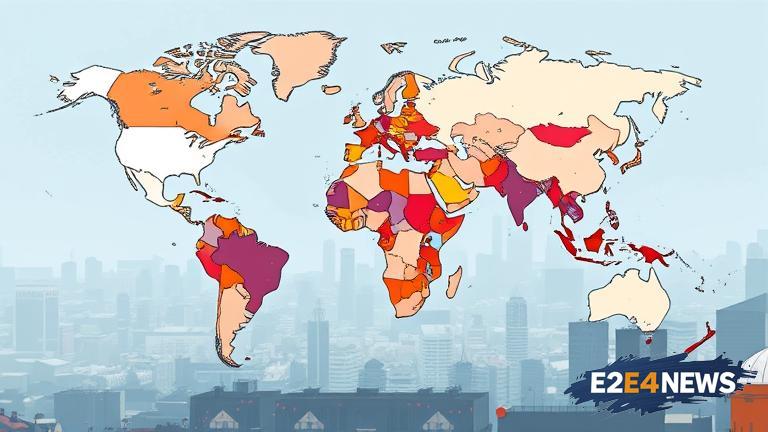The Global Power City Index (GPCI) has released its latest report, revealing the significant impact of the pandemic on the world’s most powerful cities. The index, which evaluates cities based on their economic, cultural, and environmental performance, has seen a major shift in the rankings. Cities that were once considered powerhouses have struggled to recover from the pandemic, while others have emerged as new leaders. The report highlights the importance of adaptability and resilience in the face of crisis. Cities that invested heavily in digital infrastructure and innovation have fared better than those that relied on traditional industries. The pandemic has also accelerated the trend of urbanization, with many people moving to cities in search of better job opportunities and access to healthcare. However, this has also put a strain on city resources and infrastructure. The GPCI report notes that cities must prioritize sustainability and environmental protection in order to maintain their competitiveness. The top-ranked cities in the index have demonstrated a strong commitment to reducing their carbon footprint and promoting green technologies. The report also highlights the importance of cultural diversity and creativity in driving city growth. Cities that have a thriving arts and cultural scene have been able to attract talent and investment, even in the midst of the pandemic. The GPCI index is compiled by the Mori Memorial Foundation, a Japanese think tank that has been tracking city performance for over a decade. The report is based on a comprehensive survey of over 40 cities around the world, taking into account factors such as GDP, population growth, and innovation. The pandemic has also had a significant impact on city governance, with many mayors and city leaders playing a crucial role in responding to the crisis. The report notes that cities that have a strong and effective governance system have been better able to respond to the pandemic and support their citizens. The GPCI index has been widely recognized as a leading indicator of city performance, and its findings have been closely watched by policymakers and business leaders around the world. The report’s authors note that the pandemic has created a unique opportunity for cities to rethink their priorities and invest in new technologies and infrastructure. Cities that are able to adapt and innovate will be better positioned to thrive in the post-pandemic era. The GPCI index will continue to track city performance and provide insights into the latest trends and developments. As cities around the world continue to navigate the challenges of the pandemic, the GPCI report provides a valuable roadmap for policymakers and business leaders. The report’s findings have significant implications for urban planning and development, highlighting the need for cities to prioritize sustainability, innovation, and cultural diversity. The pandemic has also accelerated the trend of remote work, with many cities investing in digital infrastructure to support remote workers. The GPCI report notes that cities that have a strong digital infrastructure have been better able to support remote workers and attract new businesses. The report also highlights the importance of international cooperation and collaboration in responding to global challenges. Cities that have strong international connections and partnerships have been better able to access new markets and technologies. The GPCI index is widely recognized as a leading indicator of city performance, and its findings have been closely watched by policymakers and business leaders around the world. The report’s authors note that the pandemic has created a unique opportunity for cities to rethink their priorities and invest in new technologies and infrastructure. Cities that are able to adapt and innovate will be better positioned to thrive in the post-pandemic era.
